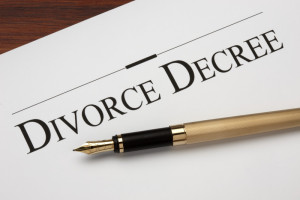
Some people have the mistaken belief that once they file their initial divorce papers (called the “Summons” and “Petition”) with the court that this is all that needs to be done to become divorced from their spouse. Unfortunately, filing the Summons and Petition with the court is only the start of a legal process that can turn complicated very quickly. The next step in the process is to have your spouse be “served” with a copy of the paperwork, so that he/she is notified that a divorce case has begun.
Most divorce cases involve parties that are going through very difficult situations. Usually, when a person is first notified that a divorce case has been initiated with the court, he/she may experience any number of emotions. Thus, it is always the best course of action that the serving of the Summons and Petition be done in the most sensitive and professional manner possible.
Additionally, California law lays out specific ways that your spouse can be properly served with the divorce paperwork. Until your spouse has been properly served with the Summons and Petition, it can be very difficult to move your case forward with the court. This is why you need an experienced divorce attorney from Wallin & Klarich, who can help you with this process and to avoid any unnecessary expense and delay in your case.
Personal Service
The most common and effective way to serve your spouse is by “personal service” (California Code of Civil Procedure 415.10). This method requires a person who is 18-years-old or older to personally hand a copy of the filed Summons and Petition to your spouse. You cannot be the one to personally serve your own spouse. The person serving your spouse can be anybody: a friend, a relative, a county sheriff, or a professional process server.
Once your spouse has been served, the person that served the paperwork will sign a court document that details how your spouse was served.
“Substituted” Service

If you are unable to personally serve your spouse after several attempts, you may have the option to serve the Summons and Petition by “substituted service” under California Code of Civil Procedure 415.20. In this method, your divorce documents are personally served to someone that is either living at your spouse’s current home or someone that is “in charge” at your spouse’s place of employment, such as a manager or company officer. The person that receives these documents by substituted service must be at least 18 years of age. However, the court still requires a detailed explanation of the attempts to personally serve your spouse before “substituted service” is accepted.
This method is usually not preferred by the court because there is no certainty that your spouse actually received the court documents. So, if your case requires this method of service, you will need to consult with an experienced divorce attorney so everything can be done as the court requires.
Service by Mail or E-Mail
In California, there are certain circumstances where serving your spouse by mail will be allowed. One such instance is when you and your spouse have discussed the divorce case, and your spouse has agreed to be served with the Summons and Petition by mail or email (California Code of Civil Procedure 415.30). When this occurs, your spouse will be required to sign a court document acknowledging he/she received the divorce paperwork by mail or email, and this document must be properly filed with the court. This method may not be effective in every case, so speak to an experienced divorce attorney regarding your situation and whether this option would be applicable in your case.
Service by Facebook
Last month, a New York court held that a person can be served with divorce paperwork through a private message sent on Facebook. The New York court determined that service through Facebook was allowed because the person that started the divorce case and her attorney had spent several years trying to get the husband properly served.
Currently, California law does not allow for serving the Summons and Petition by Facebook. However, if California were to adopt the rule made by that New York court, service by Facebook would probably only be allowed as a last resort, after many attempts to properly serve the spouse had failed. Some divorce cases involve a situation where the whereabouts of one spouse are unknown. If you are facing such a situation, you need to obtain the help of an experience divorce attorney to help guide you through that process.
Contact the Divorce Attorneys at Wallin & Klarich

A divorce can be difficult and costly for families, which is why it is important to have an experienced California divorce lawyer review your case and advise you on the best options for your case. The attorneys at Wallin & Klarich have been successfully handling divorce cases for more than 30 years. You can rely on Wallin & Klarich to obtain the best possible result in your case.
If you are going through a divorce, it is essential that you get the assistance of an experienced divorce attorney from Wallin & Klarich. With offices located in Los Angeles, Orange, Riverside, San Bernardino, San Diego, Victorville, West Covina, Sherman Oaks, Torrance and Ventura, there is a Wallin & Klarich attorney available wherever you happen to live.
To speak with an experienced California divorce lawyer about your case, please call us today at (888) 749-7428 for a free phone consultation. We will get through this together.



